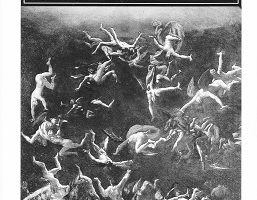BY MULUGETA GUDETA
In international politics, soft power is defined as the ability to attract and co-opt rather than coerce, as it was the case in hard power. The term soft power was coined by American political scientist Joseph Nye which he defined as the ability of a country to persuade others to do what it wants without force or coercion. Political scientist Joseph Ney who is believed to be the originator of the concept set out three sources of soft power.
According to Ney, the three pillars of soft power are political values, culture and foreign policy. For the purpose of our analysis, we are going to give special attention to culture as an expression of soft power. According to Wikipedia, :In 2012, Joseph Ney of Harvard University explained that with soft power “the best propaganda is not propaganda”, further explaining that during the Information Age, “credibility is the scarcest resource.”.
Ney popularized the term in his 1990 book entitled, “Bound to Lead: The Changing Nature of American Power”, in this book, he is quoted as saying that, “when one country gets other countries to want what it wants, this might be called co-optive or soft power .in contrast in contrast with the hard or command power or ordering others to do what it wants.”
The United States of America has been leading the pack of countries with the greatest soft power resources as early as 2020 when it was dubbed, “soft power superpower”. According to this year’s Index on Soft Power 2021, “Germany overtakes America claiming the top spot in Brand Finance’s Global Soft power” The United States is also described as, “the latest-failing nation in the ranking , dropping from first place to sixth place.”
While hard power involves military prowess as it was the case during the long centuries of colonialism and imperialism, soft power involves the ability to shape the preferences of others through appeal and attraction. Until well into the 20th century, Western powers dominated the world through military prowess. The 21st century is clearly an era of Western soft power that is less brutal but more effective in securing the submission of developing countries to the political and diplomatic diktat of Western interests. In most cases, Western domination is secured through a combination of hard and soft power to optimize the desired effects.
If we take the United States as the leading soft power nation and its behavior towards other nations, we can conclude for instance that it has been using hard power towards its relations to Afghanistan until its decision to withdraw its troops from that country while it is using soft power to subvert the rising political, cultural and economic power of China that has fast becoming a soft power nation itself.
The United States largely uses soft power to influence, dictate or persuade developing countries adapt American democracy. American values, culture and ideology. Thus US diplomatic relations with most developing countries is predicated on the assumption that American way of life is the best in the world and American democracy the best form of democracy yet available in the world.
The US as the leading soft power nation has been using hard and soft power mixed policy in its relations with most African countries during the post-independence era starting in the 1960s down to this century and this decade. For that matter, America’s rise as a soft power country coincided with its political and diplomatic expansion in the world in general and in Africa in particular.
In the 1960s the US used mostly a mix of hard and soft power in its policies towards African countries such as the Democratic Republic of Congo (DRC) where the Central Intelligence Agency (CIA) helped stage a coup d’état against popular leader Patrice Lumumba during the power struggles with pro-US politicians like Moise Tchombe and his colleagues during the disturbances in Katanga.
Since then, the US has used hard power in toppling popular regimes in Ghana, Libya and Somalia to name but a few of the countries where American or Western forces played a defining role in changing the political regimes of these countries. Most recently, the US used hard power in toppling Iraqi president Saddam Hussein and in provoking the civil war in Iraq and the rise of Islamic State. Moamar Kaddafi’s downfall in 2011 is also largely engineered by NATO and the US forces.
It has also been trying to overthrow the Syrian regime of President Assad by supporting the popular movement against it and then by directly intervening in the fighting against ISIS when the latter threatened to highjack the political process in the country in the midst of the civil war. The US hard power policy has clearly failed to attain its objective, namely overthrowing the Assad regime and replacing it with a pro-US leadership while the war un not yet over as US forces are trying to entrench themselves in northern Syria at present waiting for better days to execute its plan for the country.
As a background to its hard power, the US has always been using its soft power to undermine the traditional values and political systems of many African countries as well as subtly nudging them to adhere to American values and American dreams. Guns and missiles are not used in this kind of soft power influence in Africa. American values, culture and way of life are used to attain the objective of what Jospeh Ney calls, “when one country gets other countries to want what it wants…” or when America gets other countries in Africa to want what it wants.”
Starting From the Point Four educational and developmental program in Africa under the Kennedy administration in the 1960s to the Peace Corps program, the US has been inculcating its own educational, cultural and value system on African societies by creating a local elite imbued with the spirit of the American dream of individualism, material success, the cult of money and celebrity worshipping. To this end the various US administrations have mobilized their entire entertainment, political and diplomatic leverages to force Africans want what it wants.
In order to attain its objective of soft power subversion, the US used its music, movies, lifestyles based on money worshipping and the cult of celebrity, its educational system and its literary and artistic establishments in order to shape African societies in its own image thanks to the nurturing a submissive or subservient domestic elites as agents of this kind of spiritual or mental subversion.
As indicated above, the US status as the number one soft power nation is now fast eroding as it is pushed down to sixth place in global influence of soft power. American diplomatic, political, and other parameters of soft power are fast eroding leaving their place not only to older Western powers but also to rising new powers like China that has increasingly become the strongest competitor of Washington in this war of soft power influence. Contemporary Sino-American competition for soft power subversion is nowhere more evident than in the Horn of Africa where the two leading countries are locking horns to defend and promote their vital interests. The US attitude in this competition is largely clouded by old Cold War stereotypes of East-West hegemonic ambition and/or competition.
One of the shortcomings in current US foreign policy towards Africa in general and the Horn of Africa in particular is its tendency to look at the region through the myopic prisms of Sino-American competition for control of the region that started with the military withdrawal of the US from the region and Chinese economic penetration. The sad fact is that the US woke up from its slumber lately after the Chinese made important economic headways into the Horn region. And when Washington woke up from its negligent attitude, it rather panicked rather than trying to look at the realities in the Horn through the prism of globalization and soft power competition instead of old Cold War stereotype of hegemonic ambitions.
Chinese economic cooperation with Ethiopia is therefore regarded by Washington as Ethiopia’s alliance with Beijing against the US in this strategically important region of Africa. Ethiopia wants to develop its economy and its needs the cooperation of Washington as well as that of Beijing. Washington’s mistakes emanates from its attitude towards Ethiopia which is actually the strongest entity in the Horn as far as diplomacy and economy are concerned. Washington should not look at Ethiopia through the prism it looks at Chinese economic penetration which is not coercive but consensual. Washington could gain more by co-opting Ethiopia rather than antagonizing it as it is doing at present.
Ethiopia and the US are traditional allies under various global and regional circumstances. Lately the two countries has cemented their collaboration in the context of the war against international terrorism. What is absurd with current American attitude towards Ethiopia is that Washington is increasingly becoming hostile to Addis Ababa at a time when the reformist government now in power in the country has adopted American-style economic policies of free enterprise and Western-style democracy however incomplete the latter may be.
In the mean time, it is important to note in this context that Washington is, knowing or unknowingly trying to subvert Africans quest for independent foreign policy and sovereignty. American culture plays a big role in the US strategy to reclaim its dominant position in the Horn. The psychological and political mentalities of the elites in Addis Ababa, Nairobi or Mogadishu might be amenable to American strategic thinking of putting the region under control but the majority of people in these countries are determined to reclaim their lost sovereignty, economically, diplomatically as well as culturally and shape their future in their own hands as it is evident in the ongoing GERD dispute.
In an article Steve Thompson wrote about soft power in the following terms, “Soft power has a significant impact on decisions people, businesses and governments make. Joseph Nye, the original thought leader in the field goes one step further, arguing that soft power is “a means to success in world politics” for those that know how to leverage it.” America is still one of the leading soft power nations and in order to succeed in world politics, it has to know how to leverage it in order to make the vital difference between friends and foes and shape its diplomacy accordingly. It’s currently hostile policy towards Ethiopia is not only misplaced but does not as well fit into American traditional reputation as an enlightened and democratic entity.
The Ethiopian Herald August 7/2021




